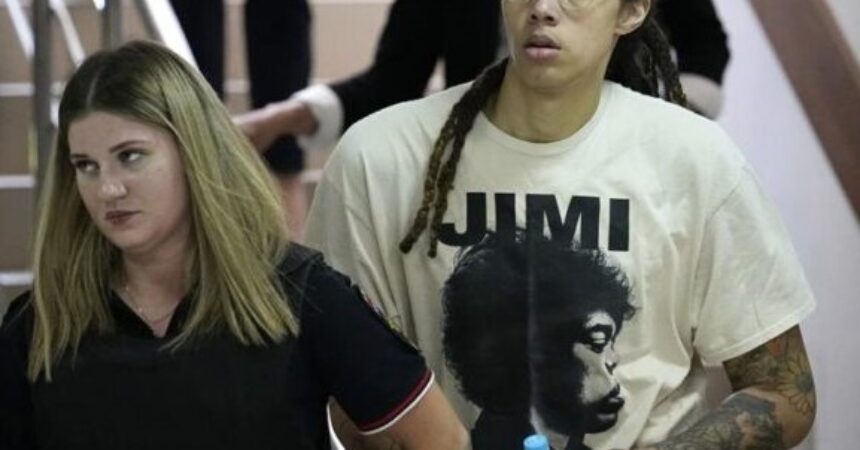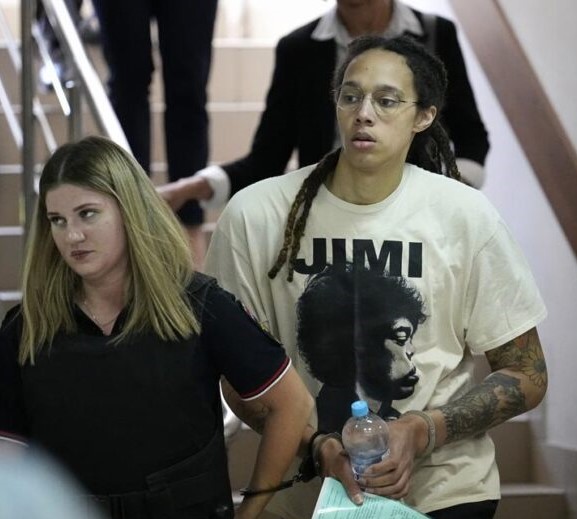
Russia transfers Griner to dreaded penal colony

Photo submitted by NNPA
By Stacy M. Brown
NNPA Newswire Senior
National Correspondent
@StacyBrownMedia
Russian authorities have transferred Brittney Griner to the country’s dreaded penal colony. While the move was expected, she and her family had hoped it would have been avoided.
Attorneys for Griner said they don’t expect to know her exact location for a couple of weeks.
Russian officials jailed Griner in February when authorities arrested her at a Moscow airport after finding a small amount of cannabis oil in her luggage.
A court convicted Griner in August of trying to smuggle narcotics. She received a nine-year sentence, which an appeals court upheld last month.
White House Press Secretary Karine Jean-Pierre said President Joe Biden had directed all in the administration to prevail on her “Russian captors” to improve Griner’s treatment and the conditions many must endure in the country’s penal colony.
Individuals who’ve spent time at one of Russia’s infamous penal colonies reported that prisoners aren’t allowed outside contact for weeks.
The colonies are notorious for corrections officers’ repeated abuse of prisoners, violence among inmates, lack of food, and inadequate sanitation.
Confirmed reports said the United States government had offered to swap the so-called “Merchant of Death” Viktor Bout for Griner and another imprisoned American, Paul Whelan.
Bout, who’s serving a 25-year federal prison sentence and notorious for his desire to kill Americans, reportedly has been at the top of Russian President Vladimir Putin’s wish list.
“We communicated a substantial offer that we believe could be successful based on a history of conversations with the Russians,” a senior administration official said earlier this year. “We communicated that many weeks ago, in June.”
The families of Whelan, who Russia has held for alleged espionage since 2018, and Griner, have urged the White House to secure their release, including via a prisoner exchange, if necessary, the report stated.
During her court testimony, Griner said she’s still unsure how cannabis oil ended up in her luggage. She said a doctor recommended cannabis oil for her injuries on the basketball court.
“I still don’t understand to this day how they ended up in my bags,” Griner said, adding that she was aware of the Russian law outlawing cannabis oil and that she had not intended to break it.
“I didn’t have any intention to use or keep in my possession any substance that is prohibited in Russia,” Griner said.
U.S. officials continue to wait for word from the Russian government on whether they will accept the swap.







